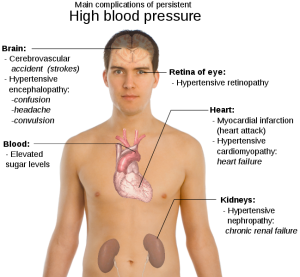Although some may be tired of politics this time of year, we can’t help but mention that Former President Bill Clinton was on Letterman last night, discussing among other things a non-political issue – heart health. The video below shows him talking about his heart problems and dietary efforts to combat heart disease.
Amazingly, Former President Clinton has cut out all cholesterol from his diet. Did you know this was possible?
Let’s learn more about the diet that sources say was based on the ideas of Dr. Esselstyn. From the blog Happy Healthy Long Life:
Dr. Esselstyn was right–now I really get it! I’m not saying I like what he requires his patients to do, but I do get it. I now understand why he’s so strict about the details of his diet (oops, not diet–I mean, lifestyle changes)–no oil, not even Pam, no nuts, no avocados, no chocolate–just vegetables, fruit, whole grains, beans, & legumes! Who would be thrilled to give up fat, sugar & salt? Wasn’t it enough that I gave up meat, chicken, cheese, fish, & other dairy products two years ago? Apparently it wasn’t, in my case. And I thought I was a savvy food shopper, but even I had a lot to learn from the Esselstyns. Now my eyes are wide-open.
Remember our blog “4 of the BEST Foods For Your Heart”? Yep – this diet is more stringent than that even, taking out nuts which have good omega 3 fatty acids.
The motivating idea of the diet that Clinton is likely on is that, in the words of the blog author, “Heart disease is a food-borne illness.” Dr. Caldwell Esselstyn believes that you can not only prevent, but even reverse, heart disease by changing diet and sticking to plants only.
Does it work? Is it worth trying? It seems that Esselstyn’s findings haven’t been tested on a large scale as of yet, although no one he has worked with has had a “cardiovascular event” since they started their new regimen. And Former President Clinton says he has lost 24 pounds. Not being heart healthy is a scary thing. That’s why it’s important to cholesterol test regularly – if you don’t know your cholesterol levels, it’s hard to make the appropriate changes in your lifestyle.
Perhaps Clinton’s remarks will draw more attention to this diet. Yes, we have definitely heard of cure-all diets before. But there is something logical about moving away from processed and fatty food and living more simply.
What do you think? Will this be a new fad? Do you think it works? Is it worth the trade-off? Let us know!





